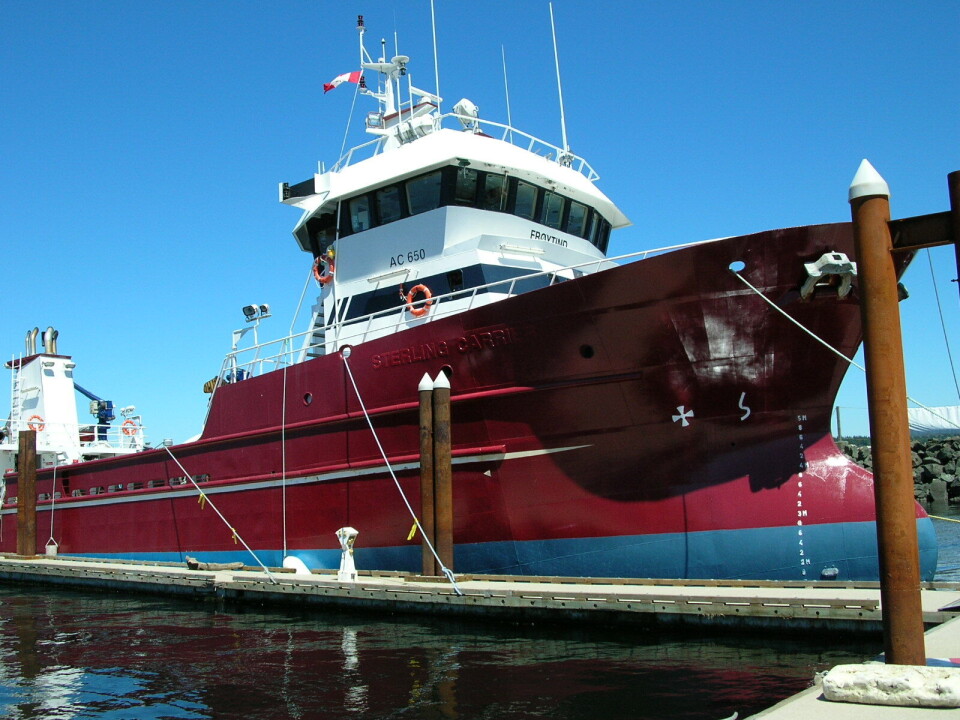
Fish farm on the move
The “Ronja Carrier” is a purpose-built vessel constructed at a shipyard in Quebec based on a Norwegian design, and it was originally owned by a British Columbia company that used it to transport live Atlantic salmon from farms owned at the time by Stolt Seafarms to processing plants on Vancouver Island. Due to the slow pace of expansion of the B.C. industry, the vessel- which at that time was named the “Stirling Carrier”- was sold, and ended up first doing business in Chile and later in the eastern parts of the Atlantic Ocean. During some of this transition period she was renamed and called “Frøytind” and is now owned by Sølvtrans Holding ASA- the self-proclaimed largest wellboat company in the world. Now she is back working in Canada, as Amy Woolvett of The Shelby County Coast Guard reports;
Activity by Cooke’s Aquaculture can be seen off the Shelburne Government Wharf as the company sets to transfer their young salmon from one area to another. The recent move gained approval by the government will hopefully make local residents happier and improve navigation, said vice president of communications, Nell Halse. The fish are being moved from their current location to further up to McNutt’s Island. “We have made the move to try to accommodate a request made by the community, the port authority and the Shelburne Yacht Club,” said Halse.
They have decided to move the smolt, a young salmon so that they are positioned in front of their own facility rather than in front of a residence or business. To aid with the move, Cooke’s Aquaculture has decided to use their $2.3-million leased well boat, the Ronja Carrier, a 155-meter Norwegian well boat that is normally used to treat sea lice. They had leased the boat to use in New Brunswick where sea lice can be a problem.
Cooke’s Aquaculture is lining up their prospects for opening up a processing facility in Shelburne County. “The overall plan is to grow in Nova Scotia,” said Halse. “We are waiting for approval for two new farms in St. Mary’s Bay and a new hatchery in Digby. We are also hoping to increase farming in Jordon Bay but that won’t happen without a full consultation with the public.” She said that if the company is successful in getting the new farms in the province then there would be enough fish to support a new processing facility. “Some of the conditions of opening the facility is the approval and the other is the support of the community,” she said.
She added that the company has received wonderful support from the local Shelburne area governments and citizens. “Some people worry because they think that our facility operates at the expense of the environment but it’s absolutely the opposite,” she said. She said that in order for Cooke’s to successfully grow salmon, the environmental conditions need to be excellent and it only supports the company to keep the environment healthy.























































